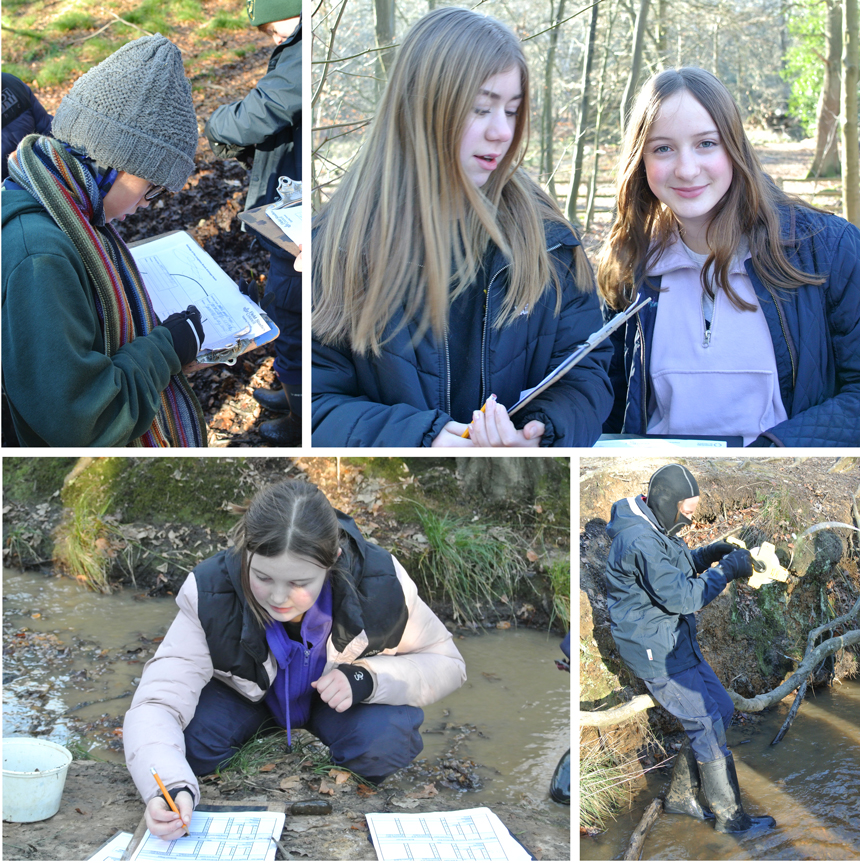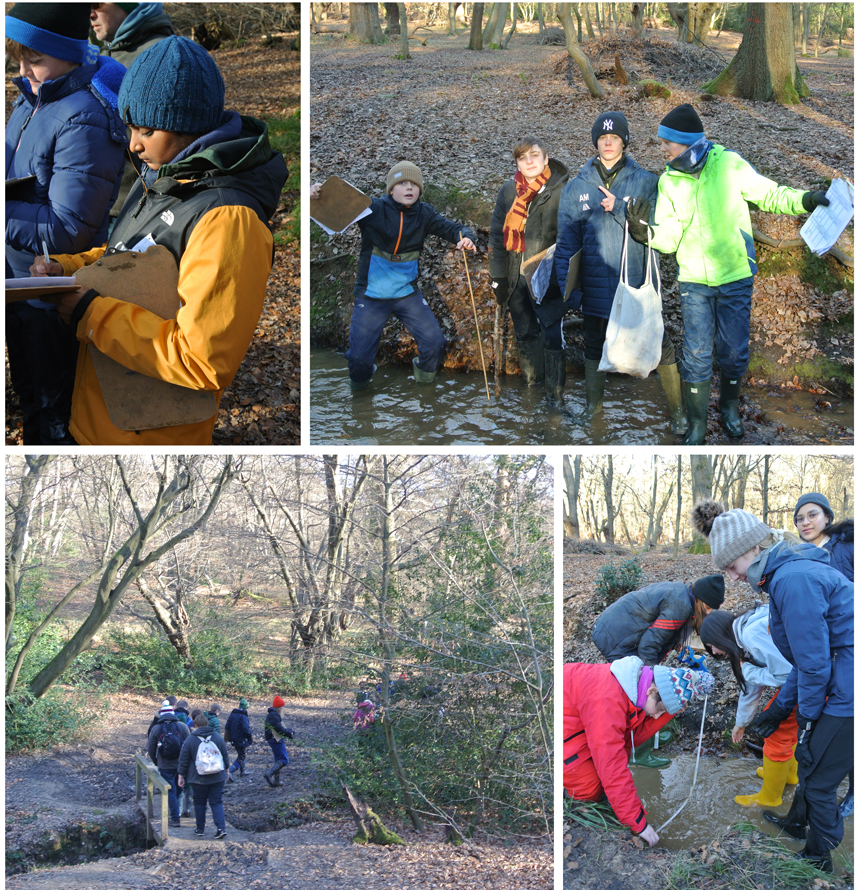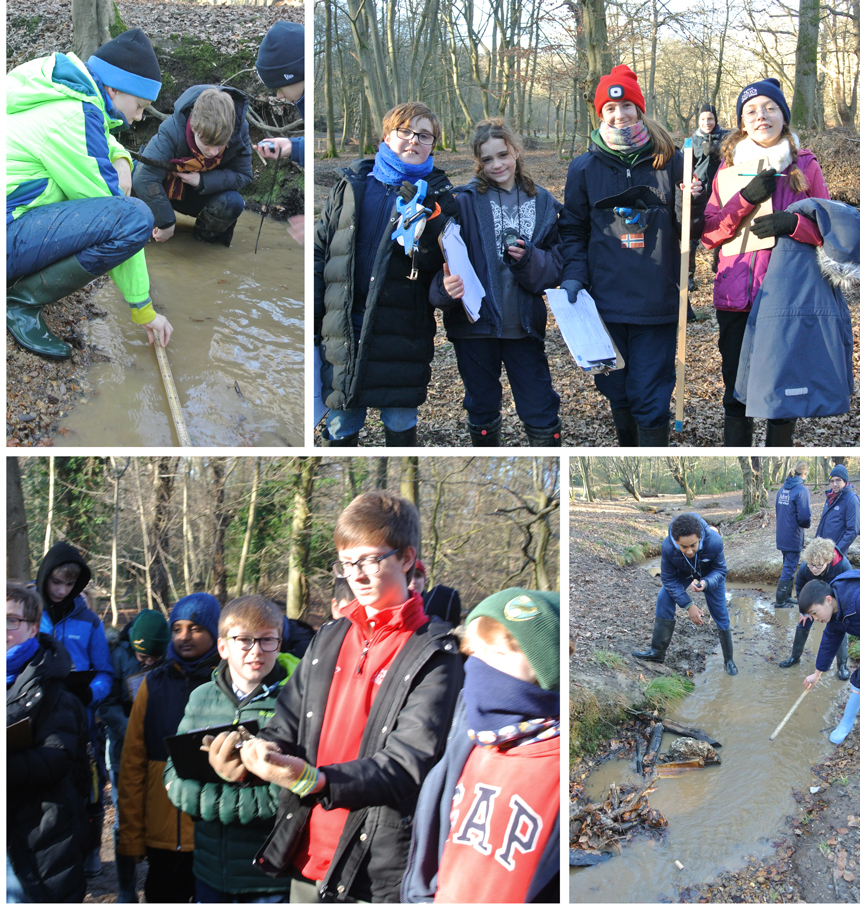Our Sixth Form pupils were eager to get their hands dirty and wade into the river, when they visited FSC Epping Forest a Special Area of Conservation. Our geographers enjoyed getting thoroughly muddy as they studied Loughton Brook which is a tributary of the River Roding. The purpose of the trip to Epping Forest Field Centre was for the children to investigate the downstream changes in the characteristics of Loughton Brook and also to assess whether it conforms to the Bradshaw Model. They also had the chance to explore how the geological makeup of the area influences the drainage basin.

“This field work experience is very important as it encourages our pupils to practise their collaborative skills, appreciate that they are all part of a team with a specific task to complete, and to enjoy the fluvial landscape around them. It gives them the opportunity to test their understanding of the theoretical aspects of fluvial environments with reference to an actual example."
Armed with their scientific tools, the young explorers embarked on a day of data collection, meticulously measuring various characteristics of the river. From its width, depth, and velocity to the ever-changing shape and size of the bedload, nothing escaped their watchful eyes.

"The children demonstrated excellent knowledge of the processes involved in a river and how they influenced the shape of the channel and altered the bedload. It was an opportunity for the children to appreciate that the learning in the classroom can be extended to real life examples.”
The information gathered on the field trip will be used by the children in their River Roding project work for the rest of term. The project includes understanding the aim of investigating the stream characteristics of the Loughton Brook drainage basin, stating their three hypotheses, adding information about the study area, putting their work into geographical context and deliberating how this fits in with what they have learnt. The children also have to consider what happens to the velocity, pebble shape and size and width/depth of a river as it flows downstream and why and finish their project with a conclusion. These are all vital skills that they will use when they embark on their Geography work at their future schools, leading to GCSEs.
